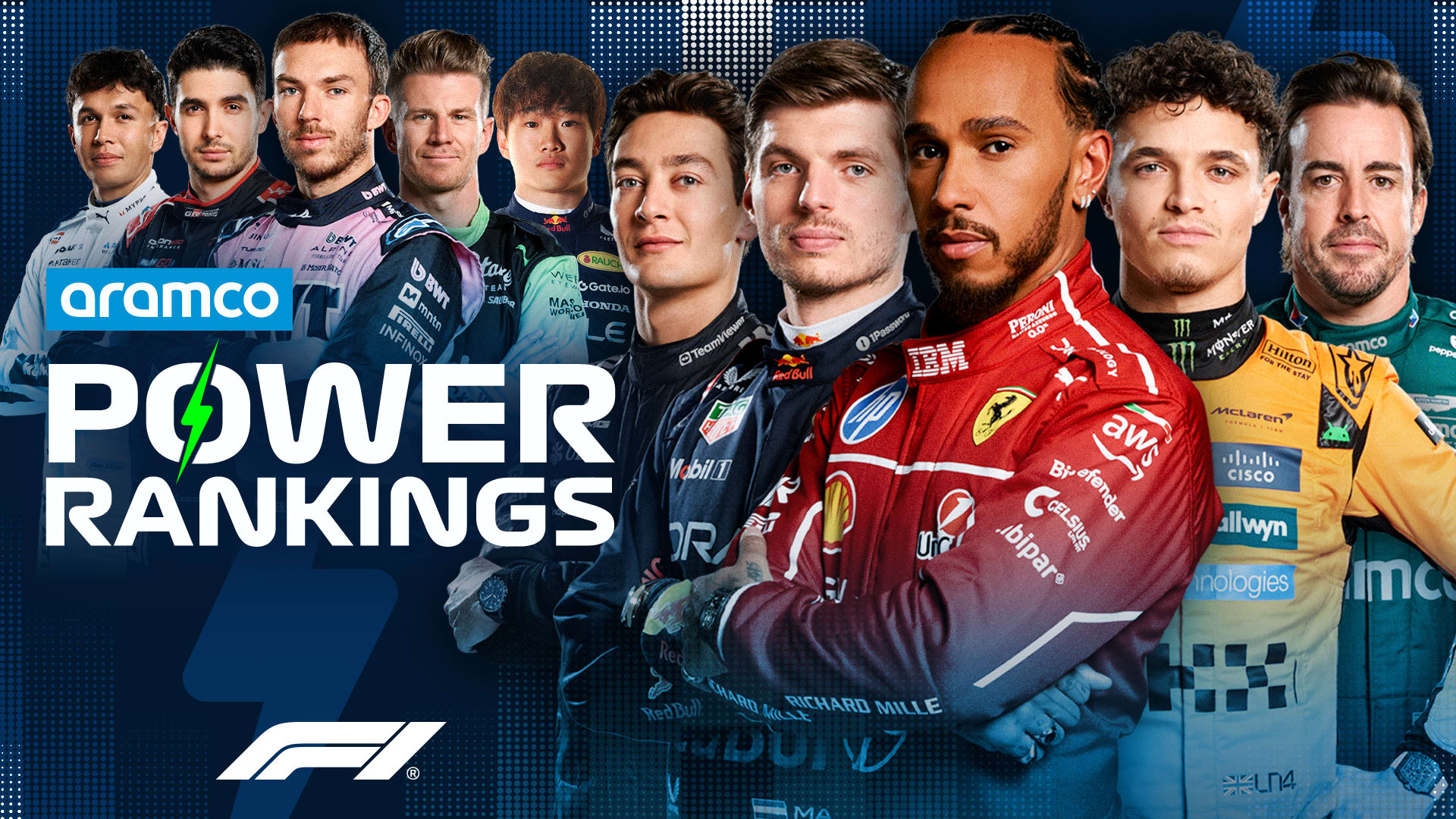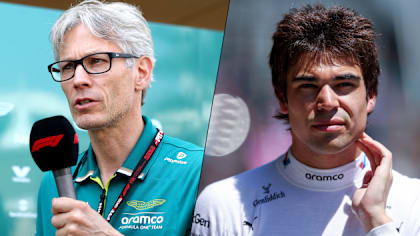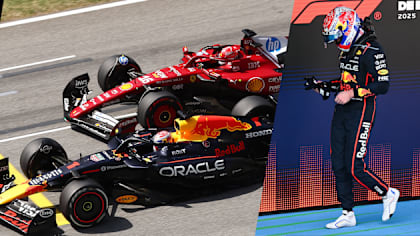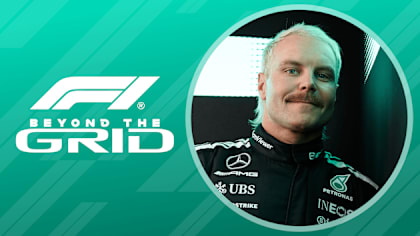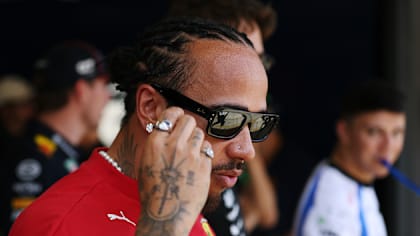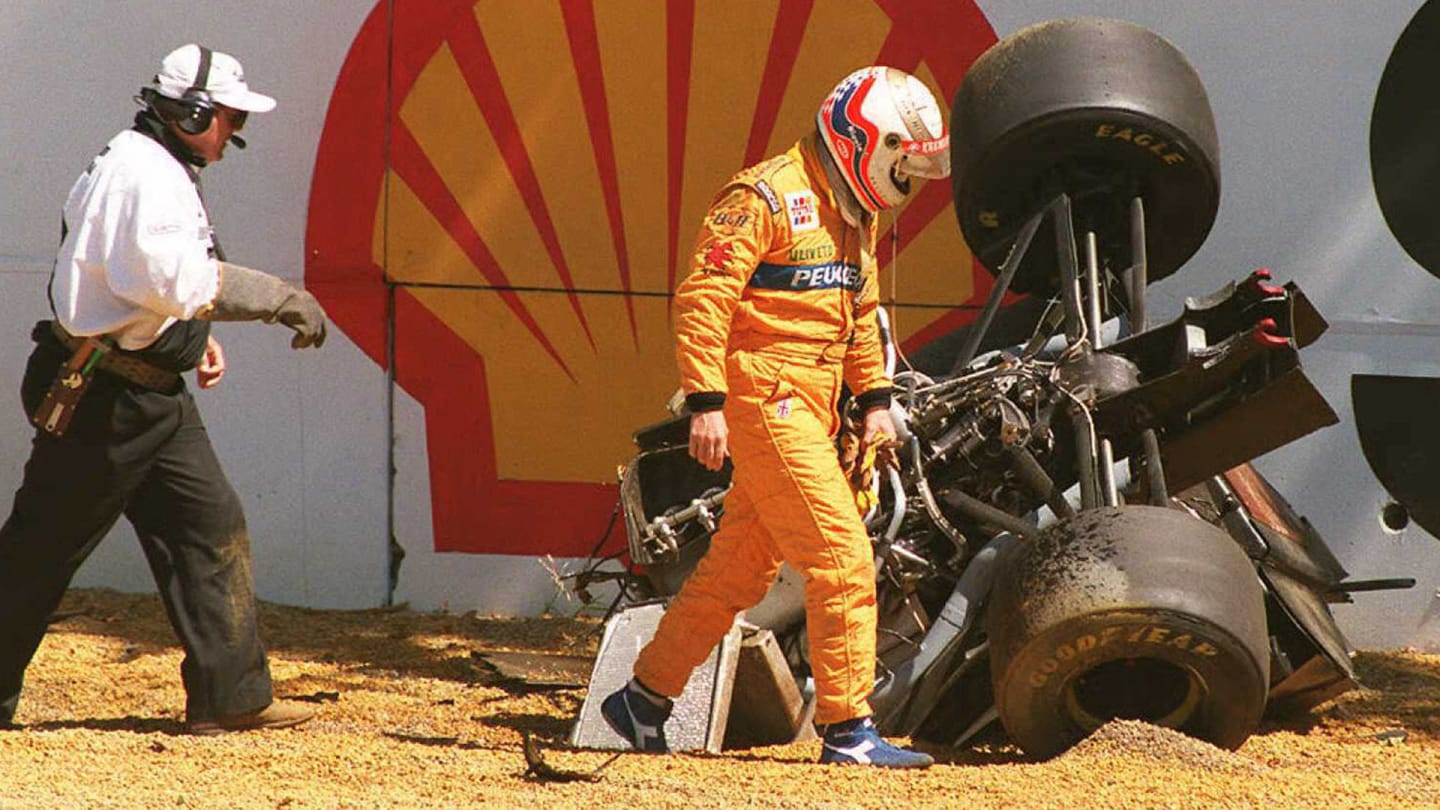
Feature
Floods, flying cars and collapsing drivers – 5 crazy street circuit debuts from F1 history

Share

The Las Vegas Grand Prix will make its debut on the calendar in 2023, with Formula 1 heading to the glamourous and glitzy city for a race that will take in the famous Strip, as well as other Las Vegas icons including the Bellagio, Caesars Palace and the Venetian.
Set to be one of the fastest ever street circuits in Formula 1, the Las Vegas Grand Prix will be truly spectacular.
But the track also becomes part of a rich history of street circuits in Formula 1. So, combing back through the annals, here are five crazy street circuit debuts from F1 history – including the last Las Vegas venue to host the sport…
Monaco
Debut: 1950
Remembered for: Fangio rides the waves to victory
Juan Manuel Fangio would take 24 victories and a full five titles in his time in Formula 1. But the Argentine’s first win would come in bizarre circumstances at the 1950 Monaco Grand Prix – the second race in the World Championship’s history, and the first to feature Ferraris.
Kings of Monaco: How the likes of Hill, Senna and Schumacher mastered F1’s most magical race
Motorsport had actually begun on the streets of Monaco back in 1929, with aristocratic racers drawn to the venue’s Riviera-side chic. But that proximity to the sea would wreak havoc in 1950, when a wave from the harbour washed over the track on Lap 1 at Tabac, causing a pile-up that put paid to nearly half the field, including front-runners like Nino Farina and Luigi Fagioli.
The canny Fangio, however, made it through unscathed, going on to take an easy victory for Alfa Romeo, one lap up on the Ferrari of Alberto Ascari – who five years later would crash into the self-same harbour.
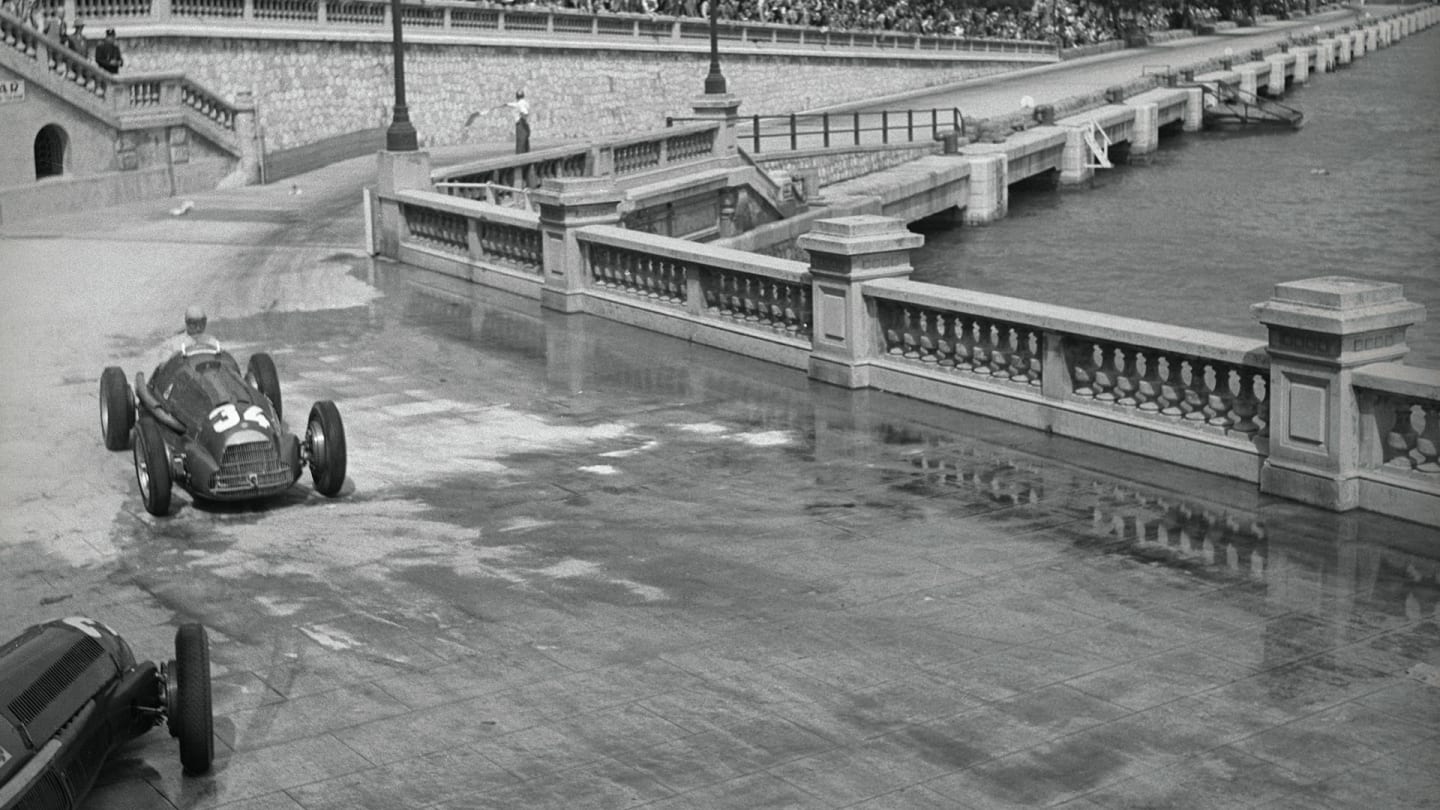
Fangio slips past a stricken car en route to victory
Montjuic
Debut: 1969
Remembered for: F1’s high wing fever ends in disaster
Formula 1’s honeymoon with Wacky Races-style aerodynamic appendages came to an abrupt halt at the 1969 Spanish Grand Prix, the first race to he held on the streets that wound around Barcelona’s Montjuic Park.
The Lotuses of Jochen Rindt and Graham Hill would start from first and third on the grid respectively. But neither driver would see the chequered flag, with first Hill crashing when his high rear wing failed, before the same accident befell his team mate 11 laps later.
Hill was able to hop out of his 49B unharmed, but would later have to help extricate Rindt, after the Austrian had cannoned into Hill’s stricken car and overturned, leaving Rindt with a broken nose, cheekbone and a fractured skull.
Jackie Stewart would go on to win the race, after inheriting the lead from the luckless Chris Amon after the New Zealander’s engine seized – while wings above a certain height were banned from the following race in Monaco.
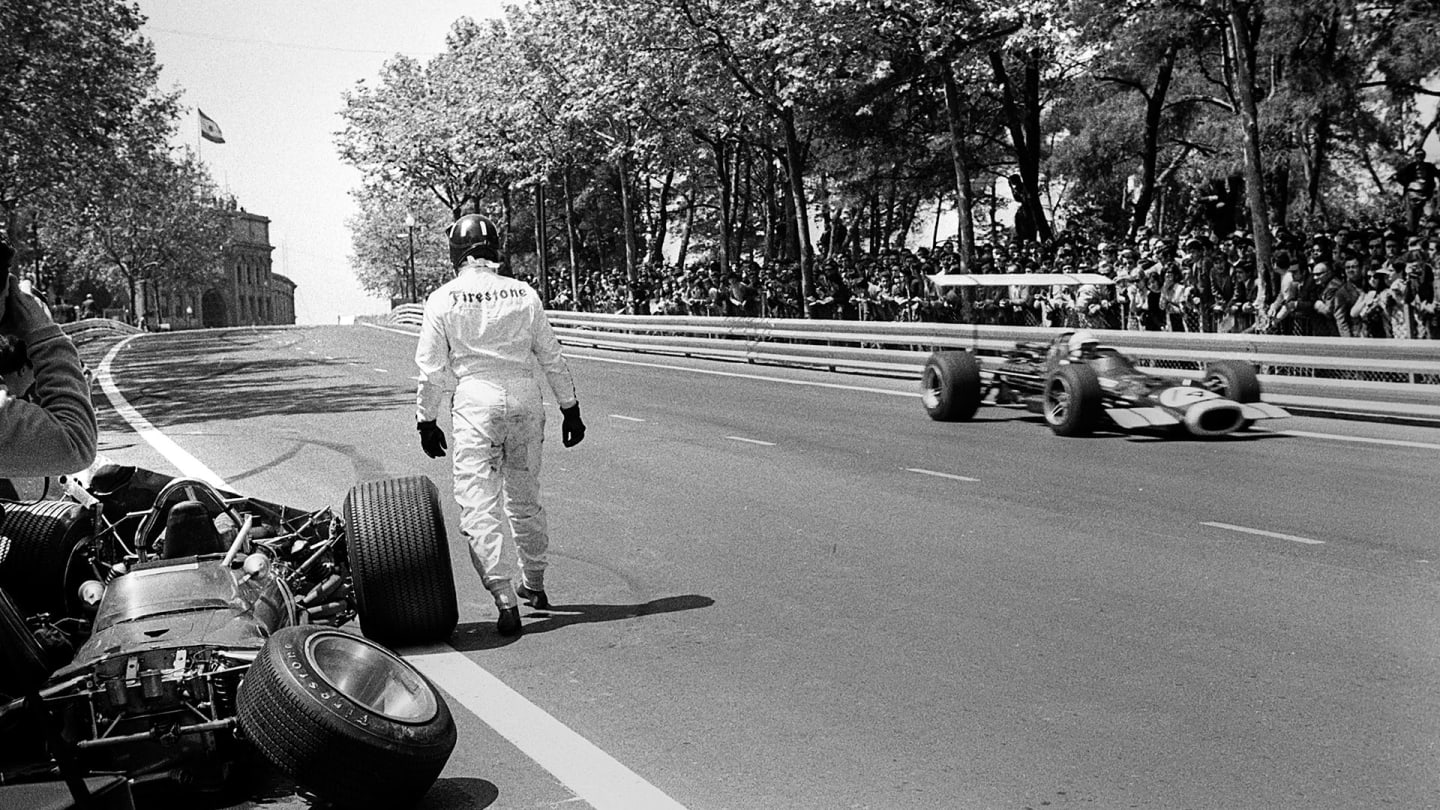
Graham Hill walks away from his stricken Lotus, as John Surtees’s big-winged BRM passes by. Hill’s team mate Jochen Rindt wouldn’t be so lucky
Caesars Palace
Debut: 1981
Remembered for: Piquet beats exhaustion to take maiden title
Formula 1’s first visit to Las Vegas in 1981 saw Nelson Piquet earn the first of his three world championships. But the Brazilian would have to go through a world of pain to do so.
The Caesars Palace Grand Prix may have sounded glamourous, but there was in fact little glamour to be had out on a track that wended its way through the casino’s car park. Veteran F1 journalist Alan Henry would call it “a ‘point and squirt’ circuit laid out between unyielding concrete barriers… and although most drivers were prepared to concede that the concept was rather novel, few would actually admit to positively liking it”.
So uncomfortable did Piquet find the track, in fact, that the Brabham driver was forced to call in boxer Sugar Ray Leonard’s masseur – although the resultant massage was reportedly so rough that it caused bruising to the Brazilian’s back!
With Alan Jones eventually winning the race for Williams, Piquet would finish P5, enough to earn him his maiden title – although as he admitted after the race: “After 30 of the 75 laps I wondered if I could reach the end. When 33 laps to go were signalled I nearly died. By then, my head was going out of the car at the bends. I was almost finished… My back and right shoulder were in agony.”
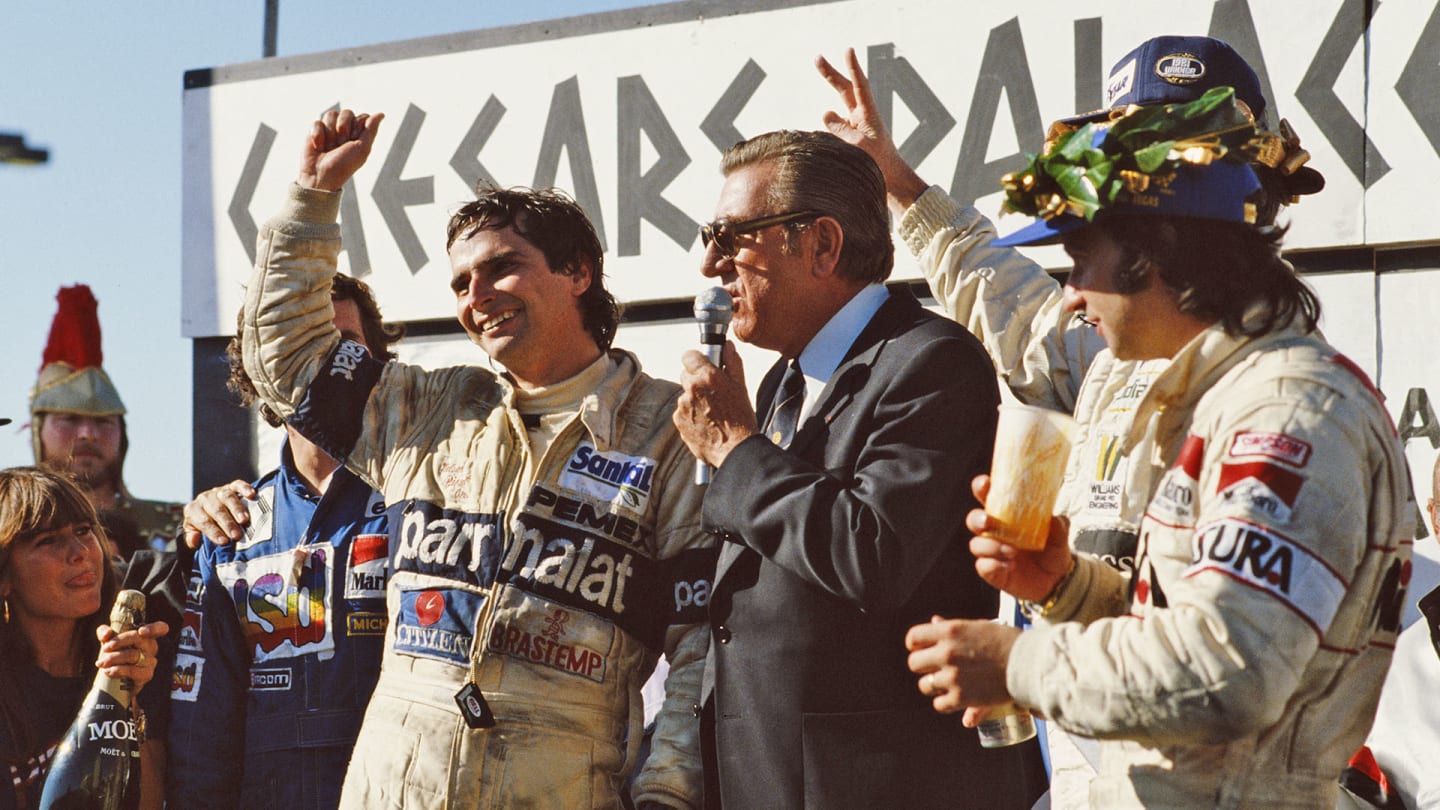
New champion Piquet smiles through the pain
Dallas
Debut: 1984
Remembered for: Mansell passes out after race of attrition
The decision to hold a midsummer race in Dallas – a time when even Texans get out of Texas – was a strange one, almost certainly motivated by the success of the city’s synonymous hit daytime TV show.
A brutally demanding circuit using the roads around the city’s Fair Park, the track surface was unsuited to the F1 cars of the day, with Keke Rosberg calling the bumpy asphalt “disgustingly bad, the worst I've ever seen anywhere”.
Conditions were so bad that the pre-race warm-up session had to be cancelled, while the organisers tried to carry out emergency repairs with cement… which then failed to cure in time for the race.
READ MORE: F1's wildest ever race? – 9 reasons Dallas ‘84 will never be forgotten
With a drivers’ boycott narrowly avoided, Rosberg – armed with a NASCAR-style cooling cap – would go on to win the race, which would be completed by just eight of the 26 starters, Rene Arnoux taking second after starting P26.
Pole-sitter Nigel Mansell, meanwhile, was running P5 when a gear linkage problem brought his car to a halt within sight of the finish. Mansell instinctively got out, tried to push the car over the line but instead collapsed next to it, waking up hours later “in hospital, on a drip, in a bed packed with ice”.
Dallas 1984 - Mansell faints
Melbourne
Debut: 1996
Remembered for: Brundle takes off
The Australian Grand Prix’ relocation from Adelaide to Melbourne for 1996 witnessed a brilliant race to kick things off – although it briefly looked in danger of starting under a cloud.
Martin Brundle’s first Grand Prix for the Jordan team had lasted just two corners before the Sauber of Johnny Herbert and the McLaren of David Coulthard squeezed together in front of him on the run down to Turn 3, Brundle left with nowhere to go as he catapulted over the top of the pair and ended up upside down in the gravel.
Despite being cleared to take the restart in the spare car, Brundle would retire soon after. But the race will also be remembered for Jacques Villeneuve becoming just the sixth driver in F1 history to take pole position on their debut, the Canadian leading 50 of the 58 laps before an oil leak handed victory to team mate and 1996 champion-to-be Damon Hill.
Top 10: Moments of Martin Brundle Brilliance
For the latest information on the Las Vegas Grand Prix, visit F1LasVegasGrandPrix.com
YOU MIGHT ALSO LIKE
News Aston Martin's Krack provides more background on Stroll’s injury with ‘Plan A’ for Canadian to race on home soil
FeatureF1 Unlocked MONDAY MORNING DEBRIEF: Verstappen made contact with Russell and Leclerc – but why were they racing each other in the first place?
Podcast BEYOND THE GRID: Valtteri Bottas on his break from racing, pushing for an F1 return and talks with Cadillac, Alpine and more
News Downbeat Hamilton says he learned ‘absolutely nothing’ from triple header after tough run to P6 in Barcelona
